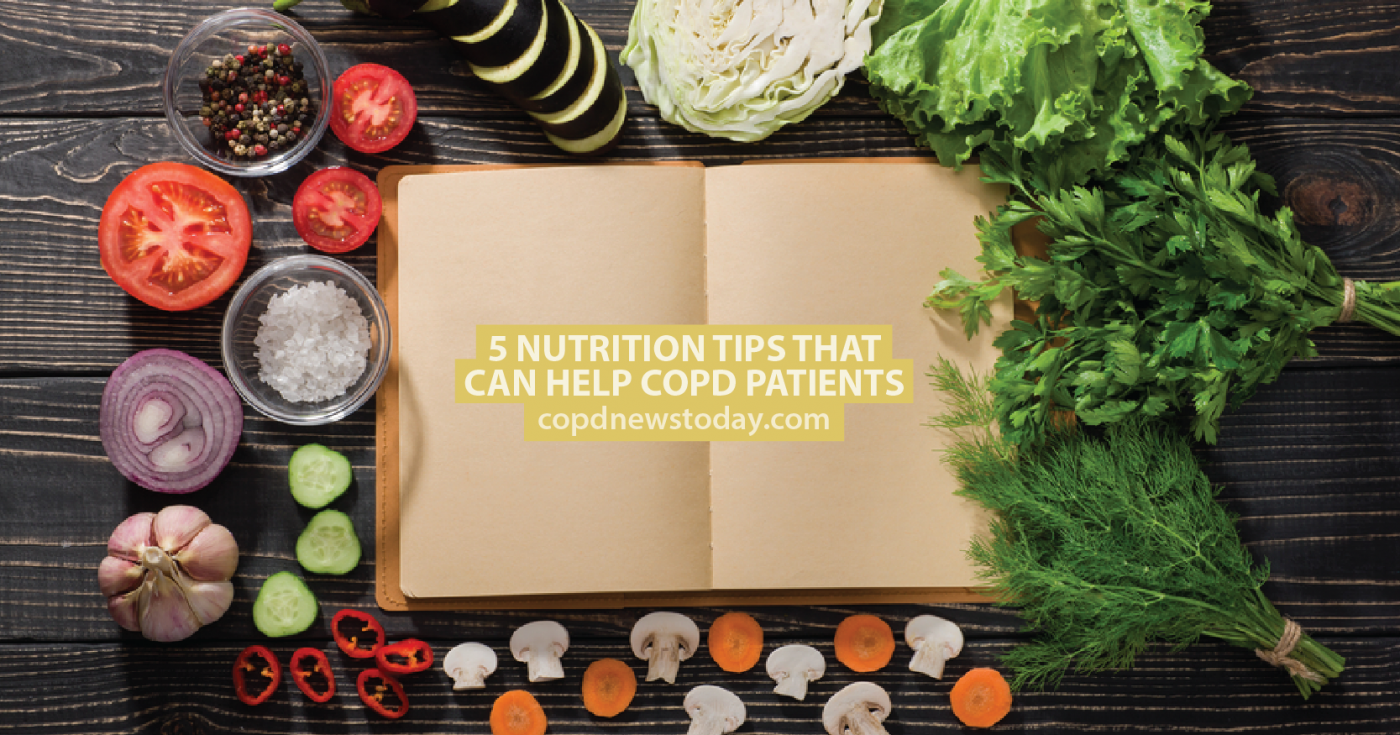5 Nutrition Tips That Can Help COPD Patients
Written by |

It’s important that people with chronic obstructive pulmonary disease (COPD) eat a healthy and nutritional diet. While a good diet can’t cure COPD, it can help patients better manage their symptoms and generally improve how they feel.
If you have COPD, a nutritionist can guide you to eating healthily, but we’ve compiled a list of tips to help you get started using information from the Cleveland Clinic and healthline.com.
Maintain a Healthy Body Weight
For those with COPD, undereating can be as much of a problem as overeating. Breathing can require up to 10 times more calories if you have COPD so it’s essential you eat enough quality calories. A nutritionist or dietitian will be able to advise you on the number of calories you need to eat to get up to a healthy weight.
Conversely, if you are overweight, the extra weight you’re carrying around will compound your breathing difficulties and make you more fatigued, you may need to go on a calorie-controlled diet to bring your weight down to a healthy weight.
Exercise can help increase muscle strength for those underweight and lose weight for those overweight, A carefully planned exercise regime can help you get to your desired weight quicker.
Eat a Balanced Diet
Eat a diet that is balanced in all food groups and try to eat a variety of foods over the week to ensure you get lots of different vitamins, minerals, and nutrients.
- Low-fat protein from meat and fish—particularly oily fish such as salmon or mackerel which is high in omega-3.
- High-fiber foods such as oats and whole grain bread, rice, and pasta,
- Fruits, vegetables, and legumes—aim for as many different colors as possible. Some COPD patients will benefit from extra potassium which can be found in bananas, oranges, tomatoes, potatoes and asparagus.
- Healthy snacks like nuts.
MORE: Nine important dos and don’t for COPD patients.
Avoid Certain Foods
Try to avoid processed foods along with fried food. You will need to limit the amount of salt you consume as it causes water retention which may hinder breathing. Some COPD patients may find that dairy products make their mucus thicker and more difficult to clear. Certain fruits and vegetables may cause uncomfortable gas and bloating, particularly beans, legumes, apples, cabbage, broccoli, Brussels sprouts, and cauliflower, so you may need to keep a food diary to establish which foods cause problems so you can avoid them in the future.
Stay Hydrated
Drinking enough fluid is essential to help thin mucus and help keep you adequately hydrated, so aim to drink around six to eight glasses per day. Water is best, but some unsweetened fruit juice is good too. Avoid caffeinated drinks, sodas, and alcohol. If you have a heart problem your doctor may advise you to drink less.
Watch How You Eat
As well as watching what you eat, you may need to change how you eat. Many COPD patients find they feel better if they eat five to six smaller meals per day rather than three big ones. Eating in an upright chair with a straight back will help to avoid any problems with indigestion and put less pressure on your lungs as your stomach expands.
Other tips include clearing your airways an hour before eating, eating your food slowly and chewing your food more, and eating your main meal at lunchtime rather than in the evening.
MORE: Can fruits and vegetables help manage the symptoms of COPD?
COPD News Today is strictly a news and information website about the disease. It does not provide medical advice, diagnosis or treatment. This content is not intended to be a substitute for professional medical advice, diagnosis, or treatment. Always seek the advice of your physician or another qualified health provider with any questions you may have regarding a medical condition. Never disregard professional medical advice or delay in seeking it because of something you have read on this website.




